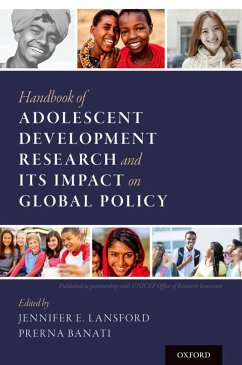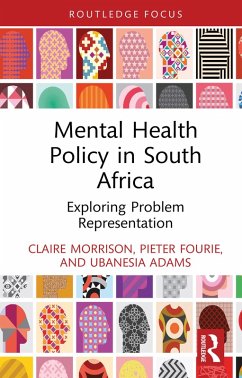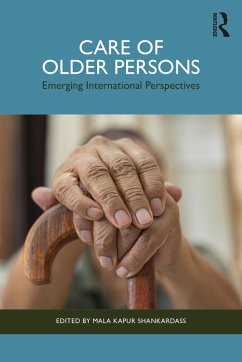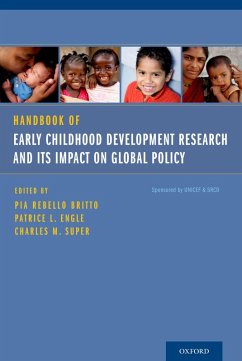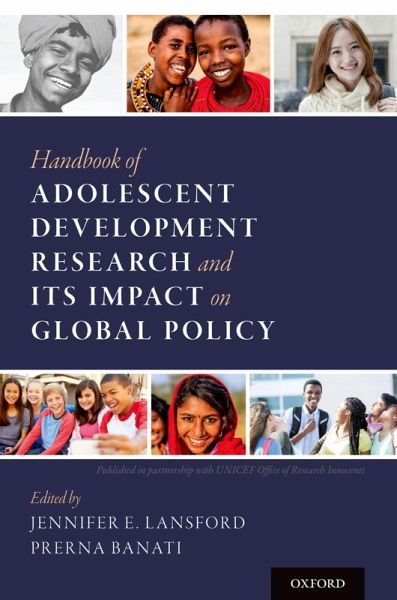
Handbook of Adolescent Development Research and Its Impact on Global Policy (eBook, PDF)
Versandkostenfrei!
Sofort per Download lieferbar
32,95 €
inkl. MwSt.
Weitere Ausgaben:

PAYBACK Punkte
16 °P sammeln!
Of the 1.2 billion adolescents in the world today, 90% live in low- and middle-income countries. These adolescents face many challenges in their lives. Enrollment in secondary schools is still low in many parts of the world, with illiteracy rates approaching 30% in the least developed countries. Further, adolescents not in school are more vulnerable to trafficking, recruitment into armed conflict, and child labor. Many adolescent girls marry and begin bearing children at a young age, contributing to the perpetuation of poverty and health problems. Despite these many challenges, adolescents als...
Of the 1.2 billion adolescents in the world today, 90% live in low- and middle-income countries. These adolescents face many challenges in their lives. Enrollment in secondary schools is still low in many parts of the world, with illiteracy rates approaching 30% in the least developed countries. Further, adolescents not in school are more vulnerable to trafficking, recruitment into armed conflict, and child labor. Many adolescent girls marry and begin bearing children at a young age, contributing to the perpetuation of poverty and health problems. Despite these many challenges, adolescents also represent a resource to be cultivated through educational opportunities and vocational training to move them toward economic independence, through initiatives to improve their reproductive health, and through positive interpersonal relationships to help them avoid risky behaviors and make positive decisions about their futures. Edited by Jennifer E. Lansford and Prerna Banati, the Handbook of Adolescent Development Research and its Impact on Global Policy tackles both the challenges and the promise of adolescence by presenting cutting-edge research on social, emotional, behavioral, cognitive, and physical development. In addition to providing actionable strategies for policy-makers and practitioners, this volume consciously adopts a positive framing of adolescence, representing young people as opportunities, rather than threats. Throughout the book, readers will find a valuable investment at the individual and societal levels as a way to contribute to a positive shift in the public discourse around young people today.
Dieser Download kann aus rechtlichen Gründen nur mit Rechnungsadresse in A, B, BG, CY, CZ, D, DK, EW, E, FIN, F, GR, HR, H, IRL, I, LT, L, LR, M, NL, PL, P, R, S, SLO, SK ausgeliefert werden.





